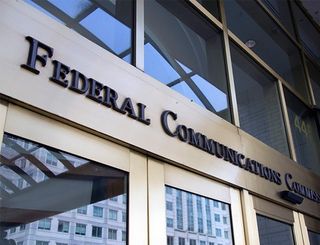FCC's Sallet Cites Gore Role in Telecom Act

Al Gore may not have invented the Internet, but he can apparently claim some parentage of the virtuous circle/cycle theory of regulating ISPs.
In a speech at an INCOMPAS policy summit in Washington Wednesday, FCC general counsel Jon Sallet, a former Commerce Department official and communications policy advisor to Vice President Al Gore at the time the act was being drafted, talked about a Gore theory of Internet choke points that clearly presaged FCC chairman Tom Wheeler's view of a virtuous circle potentially broken by anticompetitive ISPs.
"Vice President Gore observed that '[for] some time, in many places, there are likely to be only one or two broadband, interactive wires, probably owned by cable or telephone companies,'” Sallet said, according to a copy of his speech. "And then the Vice President said: 'We cannot permit the creation of information bottlenecks that adversely affect information providers who use the highways as a means of supplying their customers. Nor can we can permit bottlenecks for information consumers who desire programming that may not be available through the wires that enter their homes or offices.'"
Sallet said that the Vice President's principles "were sound in 1994 and are, in my view, equally sound today."
They are also equally sounded by Wheeler in his arguments for the need for Title II-based Open Internet regs.
Sallet did suggest that edge providers and ISPs are not easily stovepiped for the purposes of regulation, something cable operators have also pointed out when arguing that those edge providers have escaped what they see as the FCC's heavy hand.
"Is Google offering content, devices, network access, or all of the above?" Sallet asked. "Is Comcast just a cable provider, Verizon just a phone company? Each of these companies – and many more – provide a series of value propositions that defy the stovepipe industry definitions of the past."
Broadcasting & Cable Newsletter
The smarter way to stay on top of broadcasting and cable industry. Sign up below
Sallet said Wheeler has an aggressive agenda for furthering the principles of the Act, which he said includes competitive bidding to reallocate broadcast spectrum in the incentive auction as well as the proposal, being voted on next week, on third-party set-tops and other video access devices, or what he called "the Chairman’s proposed rulemaking to ensure that consumers are not locked in to renting their cable boxes from their pay TV provider but, instead, will have the advantages of competition and innovation from independent companies."
Wheeler made that pitch this week in video interview with the Washington Post, saying that he himself wanted device choice cable operators were not now giving him.
Sallet called the set-top proposal "an important step toward freeing video competition from artificial barriers to consumer choice."
Contributing editor John Eggerton has been an editor and/or writer on media regulation, legislation and policy for over four decades, including covering the FCC, FTC, Congress, the major media trade associations, and the federal courts. In addition to Multichannel News and Broadcasting + Cable, his work has appeared in Radio World, TV Technology, TV Fax, This Week in Consumer Electronics, Variety and the Encyclopedia Britannica.

